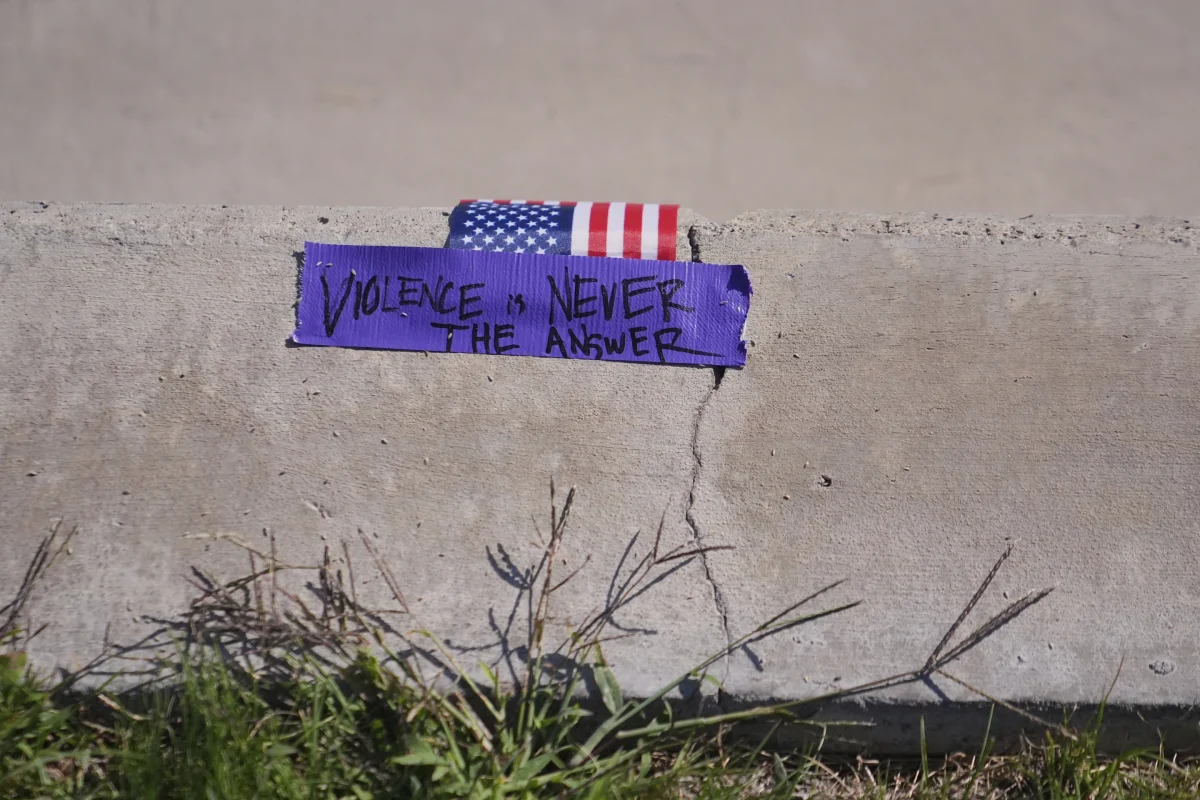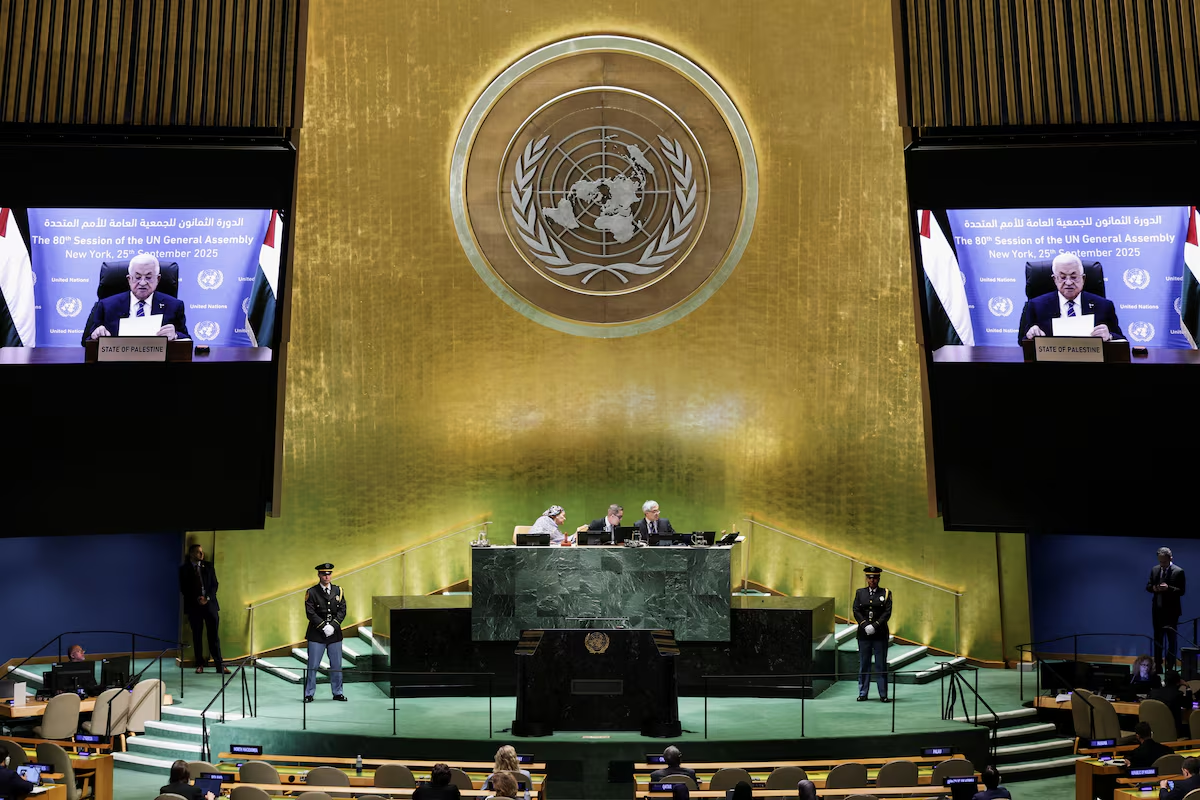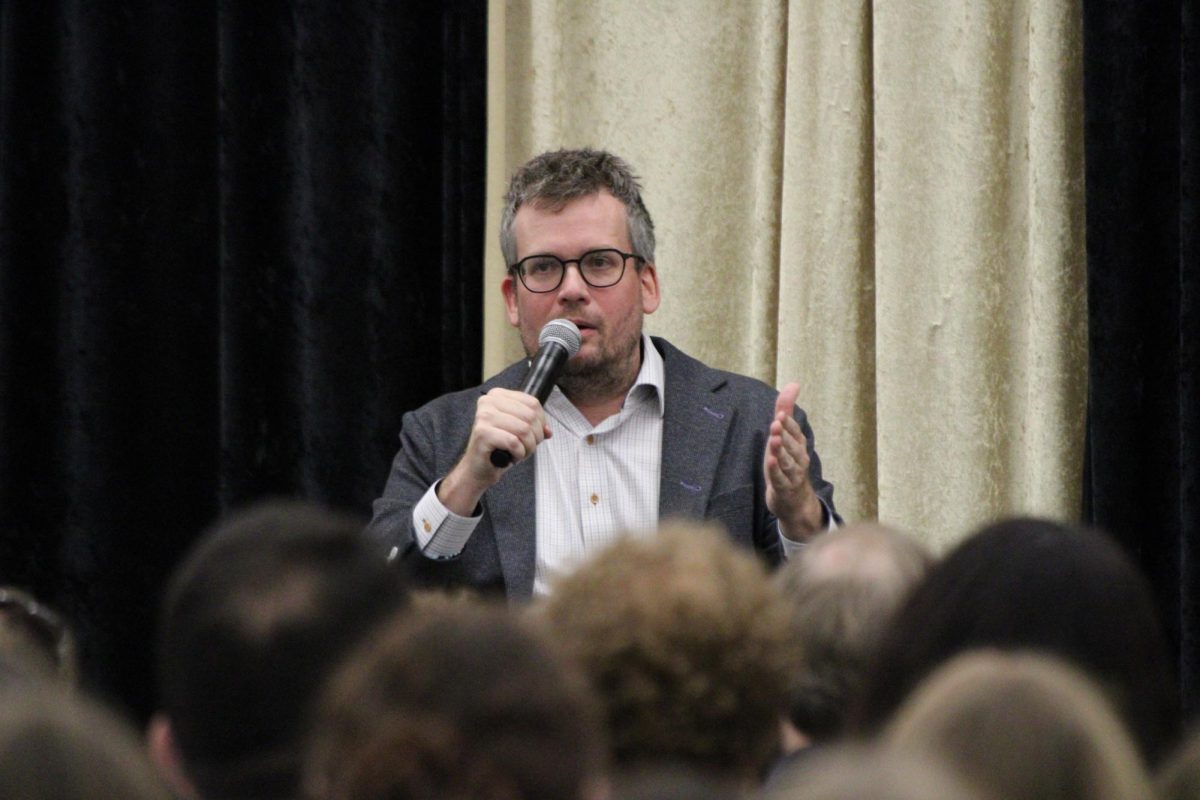Donald Trump’s rhetoric is powerful, divisive and dangerous. His unsupported claims have real consequences, with minorities and marginalized communities facing the brunt of the impact — and we must hold him accountable.
As many of you may remember, during the presidential debate on Sept. 10, Trump claimed that Haitian immigrants in Springfield, Ohio, were “eating the cats and dogs.”
Trump was fact-checked, with the moderator noting that city officials had said there were “no credible reports” of this happening within the Haitian community. Shortly after this false claim, protestors with Nazi flags marched through Springfield, fueled by Trump’s anti-immigrant rhetoric.
Trump’s brand of rhetoric is anti-establishment, and his supporters celebrate his direct and unfiltered approach. His speeches are rooted in a populist technique that relies on fear and a rejection of the political elite. During his rallies, he leans into conspiracy theories, rumors and doomsday narratives — feeding on his supporters’ fears.
His message is often apocalyptic: without Trump, the U.S. will face ruin. There will be an economic collapse, World War III, the fall of Israel and a crumbling America. He frames himself as a savior, vowing to protect the country from immigrants and minorities, whom he describes as “animals,” “stone-cold killers” and “the worst people.” This rhetoric fuels existing stereotypes while enforcing hostility and fear amongst his supporters.
“If I don’t get elected, it’s gonna be a bloodbath for the whole country. That will be the least of it. If this election isn’t won, I’m not sure that you’ll ever have another election in this country,” Trump said at a rally in Ohio.
Political scientists have analyzed Trump’s language from 2015 to 2024, noting a significant growth in violent vocabulary — from 0.6% to 1.6% by 2024. His speeches increasingly focus on themes of crime and military conflict, surpassing those of known authoritarian figures like Kim Jong Un and Fidel Castro.
At a rally in Wisconsin, Trump’s rhetoric reached new levels. He stated that under Kamala Harris’s presidency, immigrants would “walk into your kitchen and cut your throat.” When his audience reacted with shock and concern, he laughed it off, saying, “This is dark — this is a dark speech.” This tactic, mixing fear with humor, is part of his technique.
The FBI’s annual reports on hate crime statistics reflect the broader impact of Trump’s rhetoric: hate crimes surged nearly 20% under his presidency, with hate-motivated murders, mostly by white supremacists, reaching their highest levels in 28 years.
As a student of writing and rhetoric, I find this alarming. Somehow, Trump has been granted immunity to the consequences of actions that would be career-ending for many other politicians. This immunity, combined with his influence over large audiences, has created a weapon of mass destruction.
Whether Trump will become more reflective about the impact of his language remains unclear, though unlikely given his continued success. Americans deserves a leader that values unity and inclusivity, wants to make life better for all of us and celebrates the diversity that this country is built upon.
We once held public speakers to high standards, only giving platforms to those that hold moral and societal excellence. Aristotle advocated for rhetoric to be a tool for truth, justice and the common good. Today, that ideal feels distant. How did we reach this point, and how can we reclaim rhetoric’s higher purpose?



















Michael Abbott • Nov 20, 2024 at 3:57 PM
I find his comparison to Jesus outrageous.